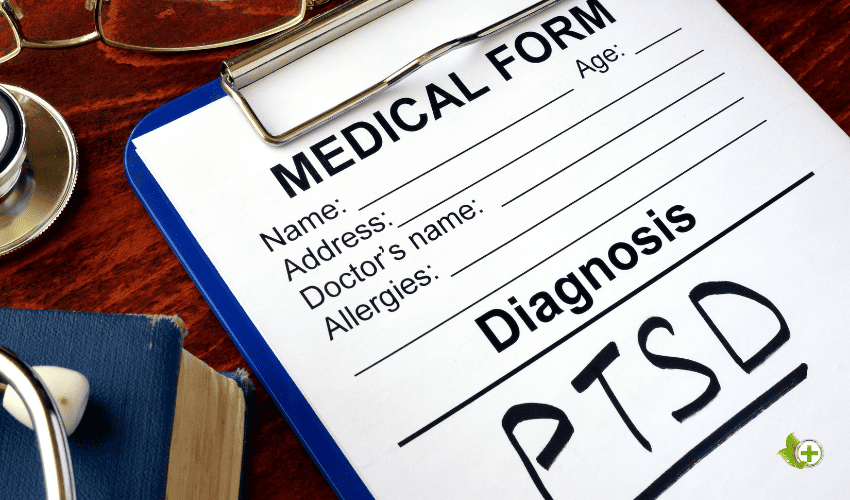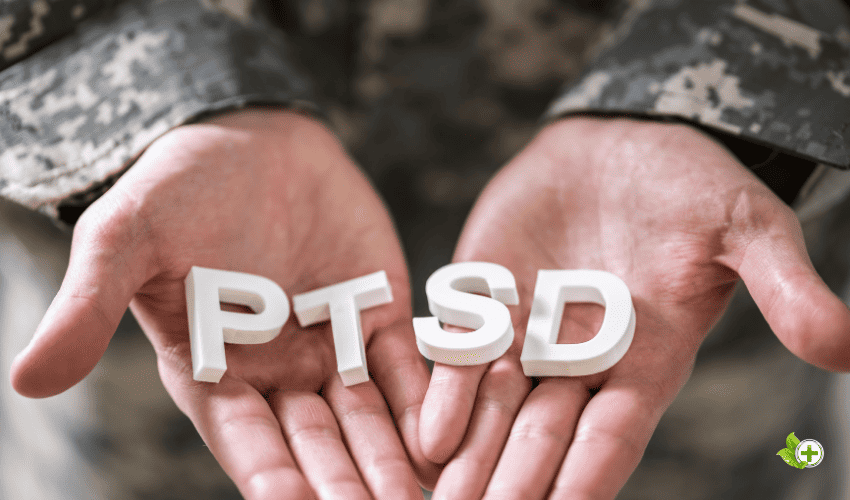Quick Reference
Is PTSD A Disability?
Yes, PTSD is a disability. It is classified as an anxiety disorder and can be very debilitating for those suffering from it. PTSD can make it difficult to function in everyday life, and can often lead to unemployment or social isolation.
What Is PTSD?
Post Traumatic Stress Disorder (PTSD), popularly known as shell shock, is a mental disorder that can occur as a result of experiencing or witnessing a traumatic event.
It's A Result Of:
- Childhood abuse [emotional/physical]
- Road traffic collision
- Sexual assault
- Natural disaster
Does PTSD Qualify You For Disability Compensation?
- If you can work, no.
- If you cannot work due to PTSD, then yes.
If You Cannot Work:
You can make a disability claim for an Employment and Support Allowance (ESA). ESA is an allowance for people who cannot work due to mental illness or disability. However, you have to prove that PTSD stops you from completing any work, as stated by the ESA Assessment Guide.
Ways To Treat PTSD
Medication:
- Anti-stress drugs
Therapy:
- Yoga
- Alternative therapies include desensitization and processing
- Cognitive therapies
- Exposure therapies
A List Of PTSD Triggers:
- Physical discomfort
- Pain or severe injury similar to the traumatic event
- Sexual violation or sexual assault
- Mixed emotions that steer up simultaneously
- Subjection to actual or threatened death
- Insomnia
- Flashbacks of the event
- Irrational fear
Types of PTSD Disability Benefits
- Social Security Administration (SSA) Benefits
SSA lists disabilities whose severity makes it challenging to find you disabled. In the case of an employment allowance, the SSA found your specific limitations are preventing your ability. Social Security Disability for PTSD provides supplemental income to individuals eligible for this stipend unless they meet the outlined eligibility conditions.
- Social Security Disability Insurance (SSDI) Benefits
The SSDI program is a federal insurance program that provides SSDI benefits to disabled people who cannot work. To qualify for SSDI, an individual must have worked in the United States for at least one year and earned more than $1,180 per month in wages. They must also be under age 65 to meet the specific medical criteria.
- Veterans Affairs (VA) Disability Benefits
Veterans with traumatic brain injuries may qualify for social security disability through the VA Administration or other state agencies. To be eligible for disability benefits for PTSD, a veteran must apply within five years of his injury or health condition being diagnosed.
PTSD affects people of all ages, genders, and backgrounds. But it's common in the military and emergency services. A study estimates that about 8% of the population in the United States develop PTSD at some point in their lives.
But, recently, there has been a lot of debate on whether PTSD is considered a disability. This argument motivated the question “does PTSD count as a disability?”
We'll address this question in this article. Stay glued!
What is PTSD?
PTSD, or shell shock, happens after seeing or living through a scary event. It can be caused by bad childhood experiences, car accidents, sexual attacks, or natural disasters. In the context of childhood experiences, gentle parenting techniques can play a significant role in mitigating the impact of trauma.
The scary event is too much for the person's mind, so it's essential to recognize that anxiety disorders, including PTSD, can also manifest in various forms and settings, such as separation anxiety in teenage relationships. It makes their fight or flight response go into overdrive. The person might have flashbacks or nightmares. They might feel stressed and get irritated easily.
Does PTSD qualify you for disability compensation?
Many have PTSD but can't get disability pay because they can still work. To get disability pay, your health issue must severely limit your daily activities. You can't get this pay if you can still do a job.
If PTSD stops you from working, you can ask for ESA. ESA is money given to people who can't work because of mental health issues or disabilities. But, you must show that PTSD keeps you from working at all.
A US work rights article says that workers with mental health issues can ask for changes at work to help them do their job. [1]

When do symptoms of PTSD show?
PTSD usually begins one month after a scary event. But sometimes, it takes years for symptoms to show up. Everyday stress can make PTSD symptoms worse if something reminds you of the bad experience.[2] [3]
You can take medicine to help with PTSD symptoms as soon as they start. The medicine includes:
- Anti-stress drugs
- Mental health therapy
- Yoga
- Alternative therapies include desensitization and processing.
How do PTSD symptoms cause PTSD triggers?
It might be tough to get why something triggers your PTSD. But there's a good reason for it. A PTSD trigger is anything that makes your body react like you’re going through a bad experience again. [4]
A trigger can be something that reminds you of the bad time or something similar. Here are some examples:
- Physical discomfort
- Pain or severe injury similar to the traumatic event
- Sexual violation or sexual assault
- Mixed emotions that steer up simultaneously: helplessness, out of control, love, resentment, and so on.
- Subjection to actual or threatened death
- Insomnia
- Flashbacks of the event
- Irrational fear
Note: In addition to PTSD, individuals, especially teenagers, might also experience intense catastrophic thinking disorder, where they constantly imagine the worst-case scenarios due to their irrational fear.
Types of PTSD disability benefits
Post-traumatic stress disorder disability benefits may vary according to a person with PTSD. There are three main types of disability benefits for patients who show PTSD symptoms:
- Social Security Administration (SSA) benefits
- Social security disability insurance (SSDI) benefits
- Veterans Affairs (VA) disability benefits
Pro Tip: For a deeper understanding of how anxiety and stress related to PTSD can become overwhelming and crippling, you can refer to this insightful article on crippling anxiety.

Social security administration (SSA) benefits
Social Security might say you're disabled and give you benefits if you show them enough medical proof. This means your medical records have serious symptoms and test results that prove you can't work.[5]
The SSA has a list of disabilities and checks how severe yours is. For work allowance, they see if your limits stop you from working. To be called disabled because of PTSD, you need to meet the rules in the SSA Blue Book. This book has a list of disabilities that can get benefits.
You can also learn more about disorders related to stress. The SSA will check your medical records, your medicines, and how you're doing in treatment or counseling. Always tell the SSA about your treatments. You can get extra money for PTSD disability if you meet the rules. The conditions include several factors: [6]
- A person's ability to work in a regular occupation
- Earnings accumulated during work and investment
- One's proficiency in doing job duties.
Social security disability insurance (SSDI) benefits
The SSDI program is run by the government. It gives money to people who can't work because they are disabled. This money comes from taxes taken out of workers' pay. This program gives a monthly income to people who can't work because of a disability.
To get SSDI, a person needs to have worked in the U.S. for at least a year and made more than $1,180 a month. They also need to be younger than 65 and meet certain health rules. The SSA must insure them before they can get SSDI money. [7]
Veterans affairs (VA) disability benefits for PTSD
Veterans with brain injuries might get disability money from the VA or state agencies.
The VA says about 20% of veterans from Iraq and Afghanistan have PTSD. Since many veterans have PTSD, it's important to know if it makes you eligible for disability money.[8]
A veteran must ask for disability money within five years of being told they have PTSD. Right now, the VA has too many requests to process quickly. Veterans who can work should try to get a job and don't need to ask for this money. The VA helps veterans with PTSD a lot. They offer health care, places to live, and money for disabilities.

What percent of disability will you receive for PTSD?
Most veterans are rated 70 percent disabled due to military service-related trauma. PTSD is considered a mental illness if a person struggles with coping skills in many areas.
Is PTSD a disability for non-veterans?
The disability rules for PTSD are a bit confusing in the U.S. People with PTSD aren't called disabled if they can do everyday tasks without problems.
PTSD alone doesn't make you eligible for SSDI or SSI. If someone has PTSD but can still work and make money, they can't get SSDI or SSI. However, some people might get SSDI or SSI for other issues like dementia, Alzheimer's, sexual trauma, or intellectual disability. [9] [10]
What is private or employer-sponsored disability insurance?
Private disability insurance is something you buy yourself. There is also a kind that employers give to their workers.
This insurance helps cover costs for disabilities that other health plans don’t cover. If workers get disabled and can’t work for a long time, employer-sponsored disability insurance helps them too.

What is the fastest way to win social security disability benefits for PTSD?
The SSA says PTSD is having bad memories over and over that hurt a lot emotionally. People with PTSD can get SSD benefits if they are listed as having PTSD.
PTSD is in List 12.15 in the Blue Book. There are three parts to the medical rules: A, B, and C. You need to meet the rules in these parts.[11]
Is PTSD a permanent disability?
PTSD isn't forever, but you need help and treatment to get better.
People with PTSD keep thinking about the bad event and stay away from things that remind them of it. Even though PTSD can get better, some problems like headaches and heart issues can last a long time. [12]
It's key to remember you have power over your life. You can change how you think, feel, and act to make your life better.

Is PTSD a disability for work?
A survey by the American Psychiatric Association shows that PTSD can affect people with mental disabilities. [13]
How does one get treatment for post-traumatic stress disorder?
Treating PTSD can be different for everyone. There are three common treatments: cognitive therapies, exposure therapies, and medication.
Cognitive therapies help change how people think about their trauma. It helps lessen the bad feelings tied to those memories.
Exposure therapies slowly put the person in situations like their trauma. It helps them beat their fear and worry. Medication helps manage PTSD symptoms. There are many kinds, and doctors help find the right one for each person.
It's essential to recognize that healing from PTSD is a journey, and it can be challenging. However, there is a plethora of support available. If PTSD affects you or someone you know, seeking help is crucial. There are excellent resources, including books on PTSD and self-love, that can provide support during tough times. Additionally, understanding signs you are healing from trauma is vital.
Final words
PTSD is a worry disorder caused by a scary event. It can lead to serious injury if the symptoms get worse and last a long time.
Many places don't take PTSD disability claims seriously. But veterans can get money benefits if they have medical records to prove their PTSD. Scary experiences can cause PTSD, but with the right help, it can get better over time.
FAQ
Is PTSD Brain Damage?
PTSD isn't regarded as brain damage because it doesn't cause any physical injury to the brain. However, some studies show that PTSD can lead to brain changes in the long term.
Does PTSD Affect Memory?
PTSD is a mental disorder that can affect a person’s memory. It can cause problems with the person’s ability to recall memories. The severity of symptoms related to PTSD varies widely among people, and some people may not experience any symptoms at all. Hence, people with PTSD need to talk about their symptoms and get help from a professional if they are having trouble remembering things or experiencing other side effects such as depression, anger, or anxiety.
References
- Citizens Information: Disability Allowance
- Pubmed: Time course of symptoms in posttraumatic stress disorder with delayed expression
- National Institute of Health: Treatment of posttraumatic stress disorder
- WebMD: What Are PTSD Triggers?
- Carlson Meissen: Does PTSD Qualify For Disability Benefits?
- SSA.gov: Disability Benefits | How You Qualify
- SSA.gov: Disability Benefits | How You Qualify
- U.S. Department of Veterans Affairs: PTSD: National Center for PTSD
- Disability Benefits Help: Post Traumatic Stress Disorder and Social Security Disability
- Verywell Mind: How Much Does Mental Health Disability Pay
- Disability Benefits Help: Post Traumatic Stress Disorder and Social Security Disability
- National Health Service: Symptoms - Post-traumatic stress disorder
- NIMH: Post-Traumatic Stress Disorder







